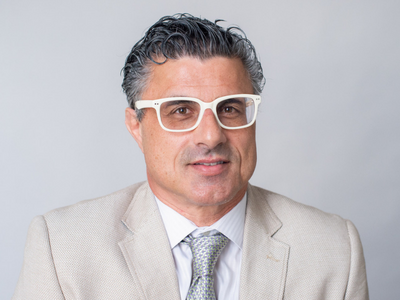 UAB Division of Gastrointestinal Surgery Professor and Director for Gastrointestinal Biology Research Aurelio Galli, Ph.D., D.Sc., was one of the featured authors of the recently published article, "Syntaxin 1 Ser14 phosphorylation is required for nonvesicular dopamine release," in Science Advances.
UAB Division of Gastrointestinal Surgery Professor and Director for Gastrointestinal Biology Research Aurelio Galli, Ph.D., D.Sc., was one of the featured authors of the recently published article, "Syntaxin 1 Ser14 phosphorylation is required for nonvesicular dopamine release," in Science Advances.
Together, the research team isolated the way that amphetamine is processed neurologically to better understand how it acts as a stimulant and alters dopamine neurotransmission.
It is known that amphetamine interacts with the dopamine transporter, a protein that controls dopamine homeostasis in the brain. By monitoring how fruit flies reacted to amphetamine, the scientists discovered that the dopamine transporter forms a complex with other synaptic proteins and that this complex controls amphetamine-induced behaviors.
Previously, the dopamine transport was considered to carry dopamine across the neuronal membrane like a shuttle. They discovered that amphetamine causes this protein to form a pore, allowing dopamine to rapidly cross the plasma membrane of the neuron and flood the outside of the cell. By better understanding the passage of dopamine, potential treatments can be refined for specific interventions.
“This research is the culmination of over seven years of work,” notes Galli. “The findings we were able to present have been made possible through our incredible research team, and I’m honored to have worked with them through this process. In particular, with Mr. Mabry soon to be Dr. Mabry.”
Co-authors from UAB with Galli are Aparna Shekar, Samuel J. Mabry, Jenny I. Aguilar, Shalin Patel, Daniele Zanella, David P. Saleeby, Yanqi Zhu, Angela M. Carter, and Heinrich J. G. Matthies.